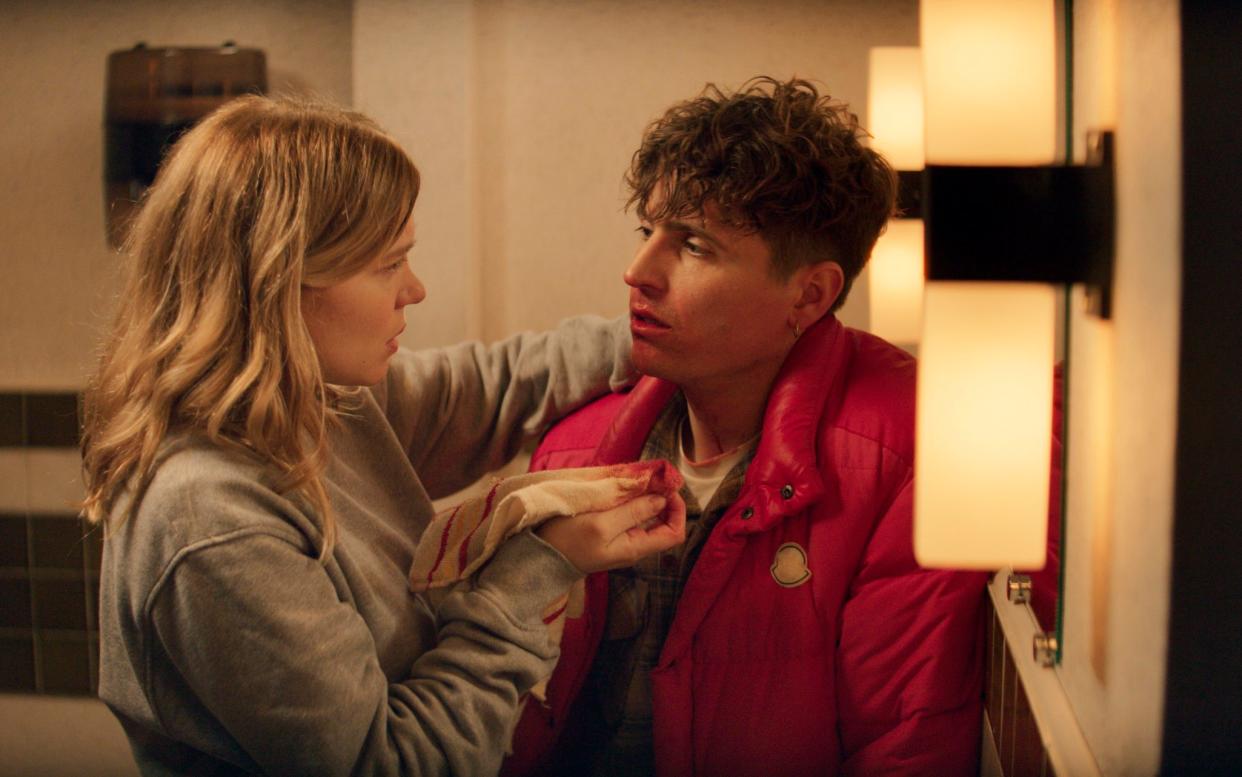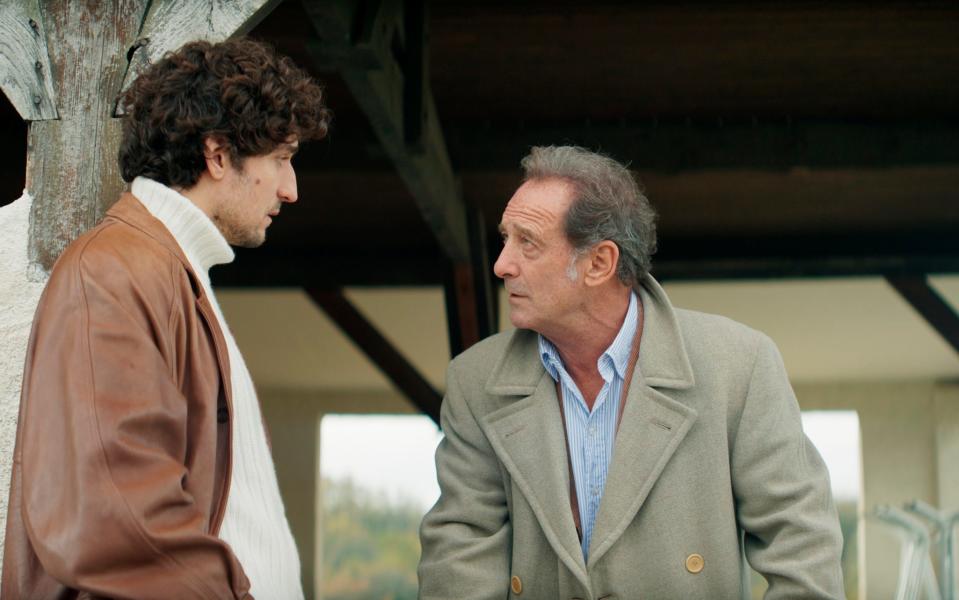The Second Act: Léa Seydoux’s bizarre AI comedy is a very timely Cannes opener

- Oops!Something went wrong.Please try again later.
- Oops!Something went wrong.Please try again later.
- Oops!Something went wrong.Please try again later.
With war, scandal and division all boiling in the background, these are tense times for the film world – and even Cannes seems to be losing its provocateur nerve.
“This year, we tried to have a festival without any controversies,” the festival’s artistic director Thierry Frémaux assured the press. (Last year’s Cannes opener was Johnny Depp’s comeback film, Jeanne Du Barry.) “The reason we’re all here is cinema. We want to put cinema back in the spotlight.”
That may prove a vain hope, as rumours of an impending major French #MeToo exposé swirl around the Palais, while freelance festival workers threaten to strike over an ongoing pay dispute. But the general wobbly-Jenga-tower atmosphere around Cannes’ 77th edition makes its opening gala an unintentionally timely choice.
The latest comedy from France’s seasoned surrealist Quentin Dupieux takes place on a film set – but one where human error is, theoretically, a thing of the past. In a roadside cafe in the Dordogne, four stars have gathered to appear in the first film to be entirely written and directed by AI. The plot is a love triangle of the most bluntly equilateral sort, involving a roll-necked Gallic hunk (Louis Garrel), his persistent new girlfriend (Léa Seydoux), and the gregarious friend (Raphaël Quenard) he hopes to set her up with instead. (Vincent Lindon, as Seydoux’s character’s father, completes the quartet.)
The director – a laptop carried around by a young baseball-cap-wearing crew member – brooks no nonsense from these four. All deviations from the screenplay result in docked pay, and all personal views on the material are ignored. Yet even so, virtually within seconds, nonsense reigns. During an early scene in which Garrel’s David and Quenard’s Willy discuss why he feels nothing for his new lover, Willy asks if it’s because she’s transgender, before embarking on an unscripted ramble about genitals that has Garrel nervously eyeballing the lens.

“Do you want to get us cancelled?” he hisses – so Willy reluctantly concedes and rephrases. Minutes later, after taking exception to a flat bit of dialogue, Lindon’s Guillaume threatens to walk, while ranting about the futility of filmmaking while “the whole world is in chaos.” Yet it doesn’t seem quite so futile after his agent calls to tell him he’s been cast in the new Paul Thomas Anderson movie, and so work is manfully resumed. Elsewhere, there’s on-set harassment when Quenard’s character makes a lunge for Seydoux’s – which he attempts to pass off as method rehearsal after being rebuffed. Don’t even try it, the actress warns: one public comment from her, and his career’s kaput.
The Second Act’s premise suggests little more than a sketch, and it can certainly be enjoyed as such, with the four leads bouncing expertly through the script’s offbeat rhythms as veiled caricatures of themselves. But Dupieux elevates it by seeding entire swaying crops of confusion: we can never be entirely sure where scenes end and the mess of making them begins. An extra playing a waiter mangles his lines and shakes so much while pouring the wine it sploshes across the tablecloth, causing Quenard to collapse into giggles and Seydoux to strop off outside. But then, after a moment of horror comes a confounding reversal. So hang on: have we just witnessed a genuine mistake within a fiction, or a convincingly faked moment of truth?
Ingeniously, Dupieux makes the two possibilities impossible to untwist. Here, artists and their art are inseparable, and if that makes life tricky for us – well, tough luck.
Screening at the Cannes Film Festival. A UK release has yet to be announced

